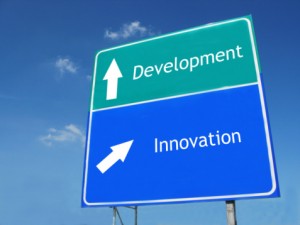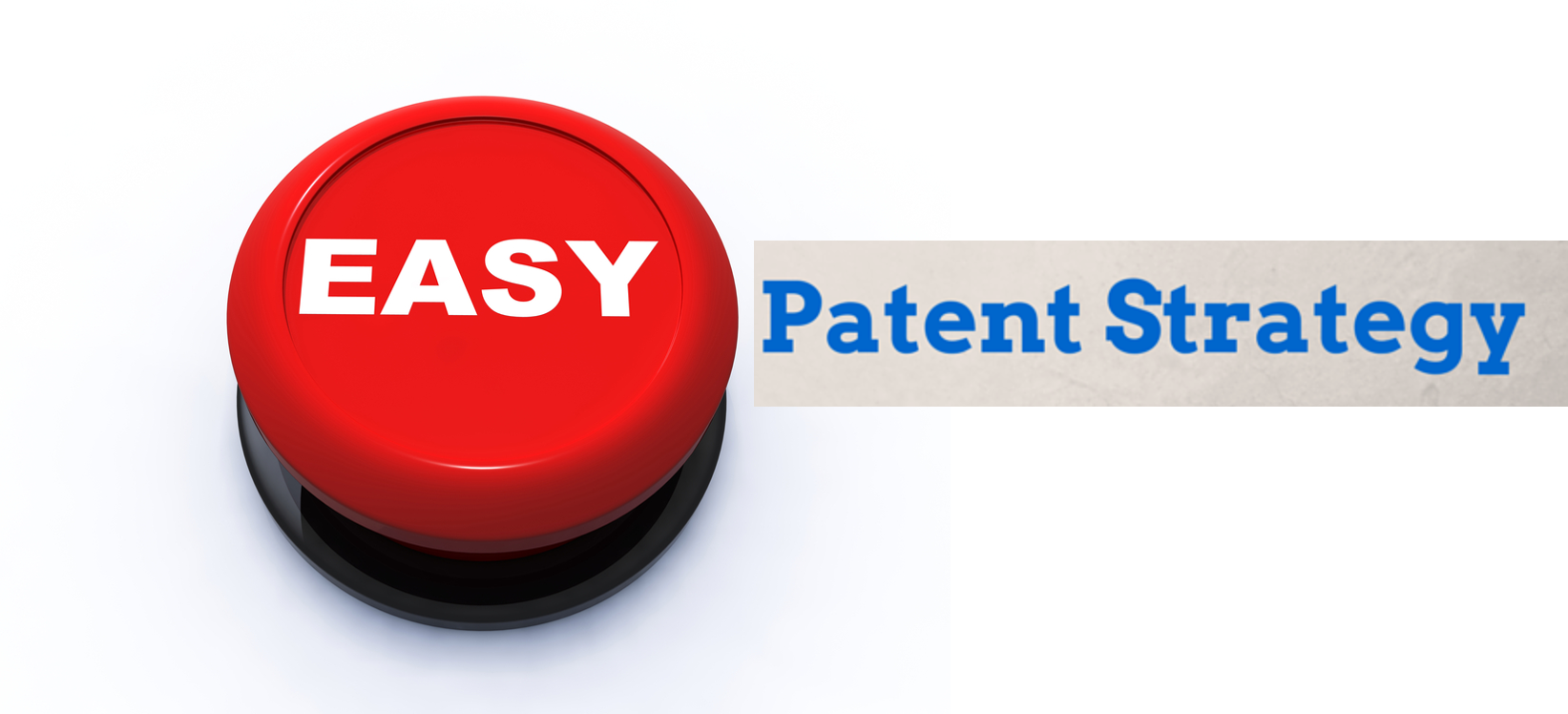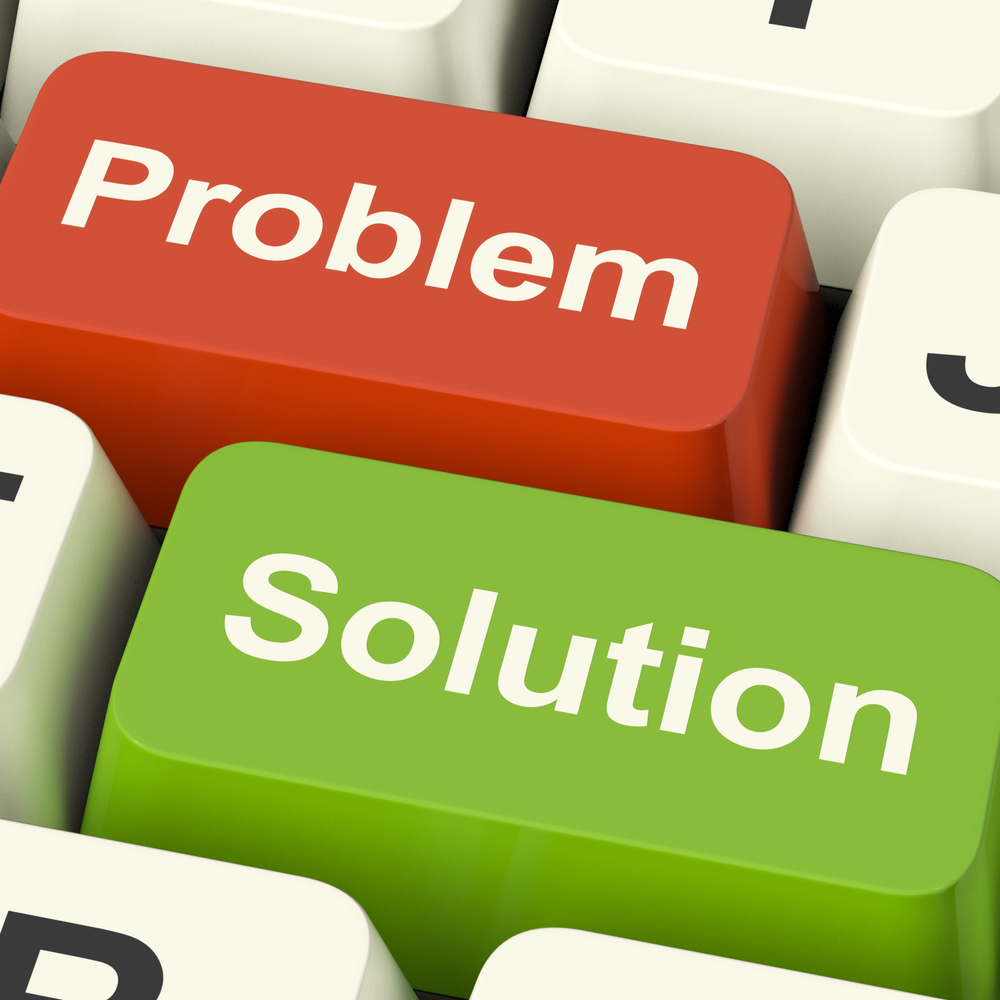 I recently finished an IP Strategy engagement with major consumer products corporation, where I interfaced with the head of New Product Development and Innovation Strategy. This company is embarking on a major shift in the way it brings products to market. In short, the company is transitioning from one that introduces new products with incremental improvements into the market on a regular basis, to one that focuses more on innovation. For this client, this strategy will mean that a significant portion of its product development efforts will be focused on solving unmet and identifying emerging customer needs, with the ultimate goal of introducing truly innovative consumer products that will be successful in the marketplace.
I am sure that my client's new products will be found to be highly desirable to their consumers: the
I recently finished an IP Strategy engagement with major consumer products corporation, where I interfaced with the head of New Product Development and Innovation Strategy. This company is embarking on a major shift in the way it brings products to market. In short, the company is transitioning from one that introduces new products with incremental improvements into the market on a regular basis, to one that focuses more on innovation. For this client, this strategy will mean that a significant portion of its product development efforts will be focused on solving unmet and identifying emerging customer needs, with the ultimate goal of introducing truly innovative consumer products that will be successful in the marketplace.
I am sure that my client's new products will be found to be highly desirable to their consumers: the
Product Companies Must Modify Patent Strategy When Adopting Innovation as Business Model
10 Key IP Strategy Insights for Innovative Companies for 2016 and Beyond
 As 2016 begins, I am entering my 8th year(!) of writing about IP strategy insights from a business value creation perspective, both here on my IPMaximizerBlog.com and, more recently, on LinkedIn. While there were quite a few IP lawyers writing blogs in 2008, no one else was then writing about IP strategy. Today, there are even more IP lawyers writing blogs about IP law, but still almost none writing that address IP strategy topics that are meaningful outside of the IP monetization and large IP portfolio context. Over the years, it has sometimes seemed like I was the proverbial "lone voice in the wilderness" who speaks frankly (or as one of my regular readers said to me last year "bravely") about how innovators can take charge of their IP strategy to create value and reduce
As 2016 begins, I am entering my 8th year(!) of writing about IP strategy insights from a business value creation perspective, both here on my IPMaximizerBlog.com and, more recently, on LinkedIn. While there were quite a few IP lawyers writing blogs in 2008, no one else was then writing about IP strategy. Today, there are even more IP lawyers writing blogs about IP law, but still almost none writing that address IP strategy topics that are meaningful outside of the IP monetization and large IP portfolio context. Over the years, it has sometimes seemed like I was the proverbial "lone voice in the wilderness" who speaks frankly (or as one of my regular readers said to me last year "bravely") about how innovators can take charge of their IP strategy to create value and reduce
Why Business Fails to Generate Patenting Strategies that Protect Innovation Value & How to Make It Easier
 Business leaders often find the decision of whether to obtain patent protection for their company's innovations to be difficult. Of course, conventional wisdom, not to mention legions of patent attorneys, assert that patents are "important" to "protect" one's business. In my experience, however, few business people can clearly articulate specifically why and to what extent patents can and will create real financial value for their business. This means that, in many companies, the decision to obtain (or not obtain) patent protection in a particular situation comes down to evaluation of anecdotal information from which a "business judgment" is formulated. In my view, when based only on anecdotes, as opposed to real data, such "business judgment" effectively amounts to nothing more than a "belief system" in which patents are viewed as relevant or irrelevant to the business over time.
As an example
Business leaders often find the decision of whether to obtain patent protection for their company's innovations to be difficult. Of course, conventional wisdom, not to mention legions of patent attorneys, assert that patents are "important" to "protect" one's business. In my experience, however, few business people can clearly articulate specifically why and to what extent patents can and will create real financial value for their business. This means that, in many companies, the decision to obtain (or not obtain) patent protection in a particular situation comes down to evaluation of anecdotal information from which a "business judgment" is formulated. In my view, when based only on anecdotes, as opposed to real data, such "business judgment" effectively amounts to nothing more than a "belief system" in which patents are viewed as relevant or irrelevant to the business over time.
As an example
Lack of Focus on IP Strategy Destroys $100 Millions in Value
 As an IP Strategist, I am fascinated by stories from which declining business fortunes can be traced directly to failed patent strategies. Often, the failures can be traced to patent attorney errors that limit the effectiveness of a company's patent to prevent competitive knock-offs, but, often, the problems can be traced to the lack of accountability for IP strategy within an organization. For those companies where IP is a primary driver of competitive advantage, the absence of someone who "owns" the job of making sure IP is properly captured and protected can result in unrecoverable errors that opens the innovator to unwelcome competition. In this regard, the recent loss of patent protection to a popular drug product should serve as a useful case study on why the C-suites of innovative companies should consider strategic in-house IP counseling to be a
As an IP Strategist, I am fascinated by stories from which declining business fortunes can be traced directly to failed patent strategies. Often, the failures can be traced to patent attorney errors that limit the effectiveness of a company's patent to prevent competitive knock-offs, but, often, the problems can be traced to the lack of accountability for IP strategy within an organization. For those companies where IP is a primary driver of competitive advantage, the absence of someone who "owns" the job of making sure IP is properly captured and protected can result in unrecoverable errors that opens the innovator to unwelcome competition. In this regard, the recent loss of patent protection to a popular drug product should serve as a useful case study on why the C-suites of innovative companies should consider strategic in-house IP counseling to be a
How Startup Patent Filing is Different
 The prevailing view of patent experts who advise innovators--be they individuals or companies--it that patent filings should occur as early as possible. This advice, which is even more prevalent now that the US has moved to a "first to file" system, exacerbates the significant problem of worthless patents that I have written about previously. To summarize, by "worthless," I mean that the innovator's patents will not cover anything that consumers desire to buy. Logic thus dictates that patents will be irrelevant to the startup, as well as expensive wastes of time, unless protection aligns with a validated customer demand for the innovator's product or technology.
This is where a key difference falls out between the patent filing strategies for established companies and startups where each is developing innovative products or technology. The former already have products in the market and customers that
The prevailing view of patent experts who advise innovators--be they individuals or companies--it that patent filings should occur as early as possible. This advice, which is even more prevalent now that the US has moved to a "first to file" system, exacerbates the significant problem of worthless patents that I have written about previously. To summarize, by "worthless," I mean that the innovator's patents will not cover anything that consumers desire to buy. Logic thus dictates that patents will be irrelevant to the startup, as well as expensive wastes of time, unless protection aligns with a validated customer demand for the innovator's product or technology.
This is where a key difference falls out between the patent filing strategies for established companies and startups where each is developing innovative products or technology. The former already have products in the market and customers that
The Medical Device Patent Strategy Problem-Case Study
 An IP Strategist like myself spends considerable time "Monday Morning Quarterbacking" patent strategy for medical devices and other inventions for the purposes of valuation, commercialization and otherwise. In this regard, I am frequently asked to review medical device patents to provide my opinion regarding claim coverage in relation to commercialization potential. Most of these reviews indicate that the medical device patent fails to create a scope of protection sufficient to justify the investment needed to fully realize the value of a new market opportunity. Alternatively, I will provide a "freedom to operate" opinion to a competitor that wishes to enter the market with a non-infringing alternative but which nonetheless leverages the key insights that formed the basis of the patented medical device innovation.
An IP Strategist like myself spends considerable time "Monday Morning Quarterbacking" patent strategy for medical devices and other inventions for the purposes of valuation, commercialization and otherwise. In this regard, I am frequently asked to review medical device patents to provide my opinion regarding claim coverage in relation to commercialization potential. Most of these reviews indicate that the medical device patent fails to create a scope of protection sufficient to justify the investment needed to fully realize the value of a new market opportunity. Alternatively, I will provide a "freedom to operate" opinion to a competitor that wishes to enter the market with a non-infringing alternative but which nonetheless leverages the key insights that formed the basis of the patented medical device innovation.
To this end, a medical device investor recently engaged me to conduct a preliminary review of a
Patent Early? Maybe Not
Patent lawyers almost always instruct inventors to file for patent protection at the earliest possible date, but maybe this is not the best advice for many startups. To the contrary, I think this conventional advice is flawed--at least when it applies to inventions involving unproven products with no known customer base. Put simply, unless customers show that they care about the product that will be covered by the patent such that they are willing to pay more than it costs to make the product in volumes that will lead to sustainable profits, the patent will provide value only for the attorney who files it. Indeed, the absence of customers who wanted to buy the product is why very few of the patents that I have obtained for
Who Needs a Patent?
 My response to the question posed in the title of this post is typically: “the only person who needs a patent is a patent attorney.” Indeed, if a patent attorney fails to convince clients like you that they need to obtain a patent, she will quickly lose her livelihood. You should therefore be skeptical if a patent attorney recommends that you move forward with a patent without also advising you to first fully evaluate your business model, your go-to-market strategy and the competitive landscape and determining along with you how the available patent protection may allow you to realize your company's revenue and exit goals.
My response to the question posed in the title of this post is typically: “the only person who needs a patent is a patent attorney.” Indeed, if a patent attorney fails to convince clients like you that they need to obtain a patent, she will quickly lose her livelihood. You should therefore be skeptical if a patent attorney recommends that you move forward with a patent without also advising you to first fully evaluate your business model, your go-to-market strategy and the competitive landscape and determining along with you how the available patent protection may allow you to realize your company's revenue and exit goals.
This is not to say that patents are never the right thing or even often the right thing for entrepreneurs. To the contrary, examples abound for companies where patents served as a primary means of
Strategic Patenting: How To Get it Right (Guest Post)
 This article, by Francis Hagel, first appeared in Intellectual Property Magazine. It provides strong guidance, in checklist form, for those seeking to beat the odds that the patents they obtain will actually generate strategic value. Mr. Hagel is an IP strategy advisor from France. The article is reproduced with permission.
"Suggestions for strategic drafting of patent applications"
In the drafting of a patent application, a practitioner starts from a blank page[i]. He/she enjoys the greatest freedom for shaping its content on the basis of the information at hand concerning the invention, its context and the prior art of interest, within the constraints set forth by patent law in the country of filing, keeping in mind the specifics of patent law in the major markets for the invention. This freedom applies to all parts of the application : definition of the
This article, by Francis Hagel, first appeared in Intellectual Property Magazine. It provides strong guidance, in checklist form, for those seeking to beat the odds that the patents they obtain will actually generate strategic value. Mr. Hagel is an IP strategy advisor from France. The article is reproduced with permission.
"Suggestions for strategic drafting of patent applications"
In the drafting of a patent application, a practitioner starts from a blank page[i]. He/she enjoys the greatest freedom for shaping its content on the basis of the information at hand concerning the invention, its context and the prior art of interest, within the constraints set forth by patent law in the country of filing, keeping in mind the specifics of patent law in the major markets for the invention. This freedom applies to all parts of the application : definition of the
Software Patent Apocalypse?
 The data coming out of the district courts and the USPTO make it fairly apparent that the "Software Patent Apocalypse" may be here, at least for the foreseeable future. This result has been widely predicted since the US Supreme Court decided Alice Corp. Pty. Ltd. v. CLS Bank International earlier in 2014, but facts now are coming out to demonstrate that the next few years will be tough for those who seek to obtain patent protection for inventions that fall into the realm of software.
The data coming out of the district courts and the USPTO make it fairly apparent that the "Software Patent Apocalypse" may be here, at least for the foreseeable future. This result has been widely predicted since the US Supreme Court decided Alice Corp. Pty. Ltd. v. CLS Bank International earlier in 2014, but facts now are coming out to demonstrate that the next few years will be tough for those who seek to obtain patent protection for inventions that fall into the realm of software.
We saw initial data from the district courts a couple of months ago when Timothy Lee of Vox.com presented data showing that a number of software patents had been found invalid as failing to claim patentable subject matter (a "Section 101 rejection" to us patent types) under the Alice rationale in



